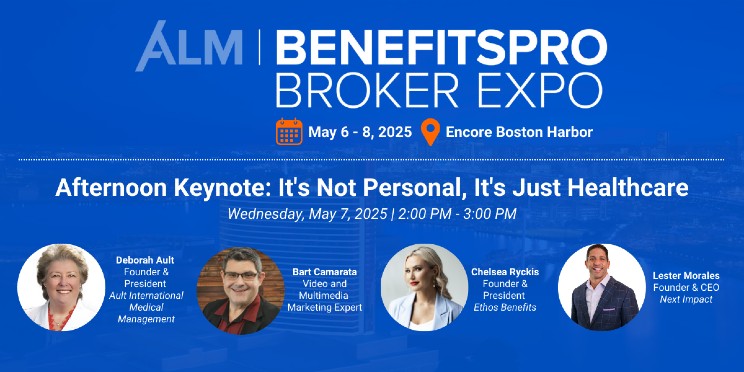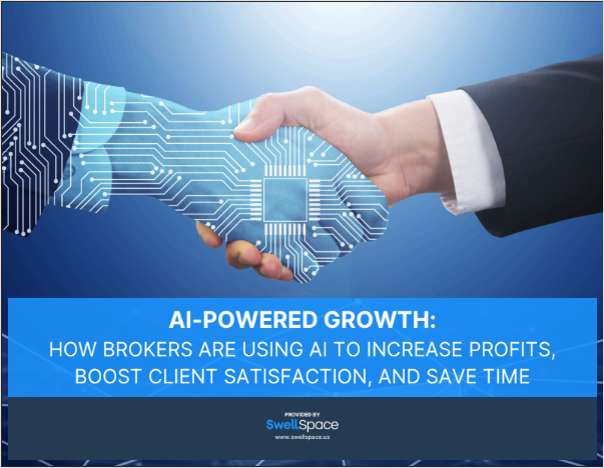Six years ago, Alan Cohen had a crazy idea.
The idea was simple, yet powerful: Let employees choose the health insurance plan they want, rather than having their employer do it for them. It would be done by allowing workers a fixed amount of money from their employer to spend in an online marketplace where they could purchase an array of benefits.
Cohen had worked in the benefits world long enough to know the ins and outs of insurance — his resumé includes stints at CIGNA, Prudential and Mass Mutual, as well as time spent as CEO and co-founder of Online Benefits, a benefits management and communication technology firm — but the light bulb came on, he says, when he finally started thinking about benefits through a “consumer lens.”
“When you look at it like that, it's so obvious,” he says.
“Shopping for health insurance is just as personal as the clothes we wear, the cars we drive or the stocks we invest in,” he says. “We've got ourselves into a model where companies are making decisions on very personal things — and most often the wrong decisions — because people's needs are so different.”
So, with Ashok Subramanian and Tim Godzich, Cohen decided to start a company and imagine a better way.
“We thought, if we had to re-create this [process] from scratch, what's the best way to do this?”
In 2007, Liazon — and its Bright Choices private exchange — was born.
Though the idea was simple, it was also ahead of its time. Liazon was among the first companies to establish a private health insurance exchange, a trend that has since exploded. Consulting firm Accenture has since predicted as many as 40 million people would enroll for coverage via private exchanges by 2018. Today, less than 1 million are enrolled.
Liazon gained a foothold, and most recently caught the attention of executives at global consultant Towers Watson. In late November, the consulting giant bought the Buffalo, N.Y., based business for $215 million. Liazon will remain intact, doing business “as usual,” Cohen says, but now as a Towers Watson subsidiary.
Cohen, who continues to act as Liazon's chief strategy officer with the deal, says partnering with Towers Watson will put his former startup in a whole new playing field by offering a significant growth opportunity. “Being part of Towers Watson allows Liazon to reach a broader range of clients, invest more in product and technology, and leverage Towers Watson's offerings to benefit all of Liazon's channel partners,” Cohen says. “It's an incredibly exciting time.”
We talked with Cohen about Liazon, the private exchange market, the Patient Protection and Affordable Care Act and where the health care market is going.
What is the idea behind Liazon and its exchange?
It's built off the basic concept that benefits are really personal in nature. In fact, it's a historical accident that we get personal coverage through our company, because everyone's needs are so different.
Companies should create a budget that's affordable for them — they should create a strategy—and allocate those dollars and let their employees pick whatever they want in this robust store that allows them to have control, personal accountability and the ability to make their own decisions.
Walk me through building the exchange.
What you need to build the idea is to have really great technology to help people make those choices about insurance and learn more than they know about insurance and health care and finances and help them become good consumers. You have to have an additional support system, so we built a really advanced support system that helps people make decisions. It's almost like a personal financial advisor that you tell everything about yourself and they come up with a recommendation.
You also need to have really strong administrative systems, because now all these people are making these decisions on our system — and you have to feed that information to health plans, to insurance carriers, to companies and payroll deductions.
And you also need a call center, to answer people's questions and help them work through the system. So that's what we developed.

And six years later, how's it working?
Now we've processed over 200,000 transactions. Over 2,000 clients, almost 100,000 people. Six years later, we've seen [that with an exchange] companies can reduce their costs and they can predict their costs in a better way. Employees are really happy because they can choose what they want and they're getting a lot more choices than they had before. Employees are happy, they're engaged and becoming frankly quite smart about insurance and their accounts.
And employers are saving time. The way we think about it is employers make one big decision: How much money do I want to allocate to my employees? And then they let their employees do the rest. Companies do this with everything else —they pay their employee a salary and [the employee] goes out and buys their own mortgage, car and TV, chooses their own investments. So why does the company have to choose their health insurance for them and their family?
You've talked about how brokers are helping drive your exchange and its success.
Bright Choices is distributed almost exclusively through deep partnerships with insurance brokers. Insurance brokers and insurance companies is the only way people get Bright Choices. We now partner with over 350 insurance brokers, including 12 of the top 15, so the vast majority of the top insurance brokers are partners of ours. Right now, they're putting their products on Bright Choices or we give them an opportunity to have a private label to create the proprietary exchange, using our technology. Many of the top brokers are doing that.
Some employees are scared about the possibility of being shifted into an exchange. What would you say to those consumers?
I think fears of [exchanges], in large ways, are unfounded, because you have to understand what you're afraid of. I think a real fear [for consumers] is they might get a lot less money [from their employer]. They might give me less money than [I] need. But that's not the exchange's fault. That's like a company saying, 'I'm going to pay you less this year than I did last year.' That's like if all of a sudden your company paid you less money, and you couldn't afford the car you wanted—you wouldn't blame the car dealership. That's not the dealer's fault; that's the company's fault. We see off-the-charts satisfaction — close to 90 percent. Companies can save money with this — companies who make the right funding choices can save money in a smart way. If they do that, it's all upside for the employees because they can spend money on what they want.
You're one of the first companies to establish a private exchange. And now they're really booming. How do you feel about this big trend, knowing you were one of the first to do this?
It's kind of surreal. Five years ago, we were out there as the only one, basically yelling at people that this [idea] makes sense. We'd talk with insurance carriers, and they thought we were crazy. But now my phone rings off the hook. Every carrier in the country is calling, asking me, 'How do I get on your exchange?'
Our sales are up over 400 percent this year from last year. It's been crazy. Honestly, the competition side of it—I love the competition, because if you started something, and then five to 10 years later, you're still the only one doing it, then you know what that was? It was a bad idea. We live in a free-market economy. If it's a good idea, you should expect tons of competition. That's great. That's a good thing. In what we're doing, this is about changing people's opinions on employee benefits, and we can't do it alone. We need Bloom and Aon Hewitt and the carriers coming out with their products. When people ask me who our biggest competitors are, I name none of those people.
Why not?
As much as this is such a booming area, there is so much opportunity. In 2014, probably still less than 1 percent of companies will be using a private exchange. Frankly, our biggest competitors are not Aon Hewitt's exchange, or Bloom's exchange. Our competitor is actually status quo—that's what we will all be competing against for a long time.
In our little part of the world, in our niche, we're trying to change the world.
What about the public exchanges? Has reform — and its exchanges —spurred interest in the private exchanges?
Absolutely. I think a couple things about the public exchanges: The talk of the exchanges has spurred great interest in the private exchanges, so I'm thankful for them for that. We also don't really compete with them. The public exchange is mostly about individuals who don't have insurance through their work or don't work. And we work exclusively with companies. What I don't like about [the public exchanges] is the challenges they've had. Honestly, I think about them as part of our industry, and we've gotten numerous questions saying things like, “your system isn't like the public exchanges; yours will actually work, right?” Any company in this broad industry that is publicly breaking down is bad for this industry.
I hope they get it right; I'm confident they will. But their challenges have been painted on the rest of the industry.
That must be tough. So does that make you feel negatively about the law in general? A lot of employers — whom you're working with — are skeptical about it.
I think the overriding goal of the law is not just laudable, but critical for the success of the American economy. Everyone needs health insurance. We can't just have 50 million people who don't have health insurance. Honestly, it's not just about people, it's about a worsening risk pool. The biggest reason why health costs have gone up is because people say, 'I won't have insurance. I'm going to fly without a net.' It's bad for people who don't have insurance, it's bad for society, it's bad for hospitals, for the insurance industry, for doctors. We've got to figure out a way to get them insured. The goal of the law I absolutely agree with. But there are a lot of parts of the law with serious problems.
Complete your profile to continue reading and get FREE access to BenefitsPRO, part of your ALM digital membership.
Your access to unlimited BenefitsPRO content isn’t changing.
Once you are an ALM digital member, you’ll receive:
- Breaking benefits news and analysis, on-site and via our newsletters and custom alerts
- Educational webcasts, white papers, and ebooks from industry thought leaders
- Critical converage of the property casualty insurance and financial advisory markets on our other ALM sites, PropertyCasualty360 and ThinkAdvisor
Already have an account? Sign In Now
© 2025 ALM Global, LLC, All Rights Reserved. Request academic re-use from www.copyright.com. All other uses, submit a request to asset-and-logo-licensing@alm.com. For more information visit Asset & Logo Licensing.








